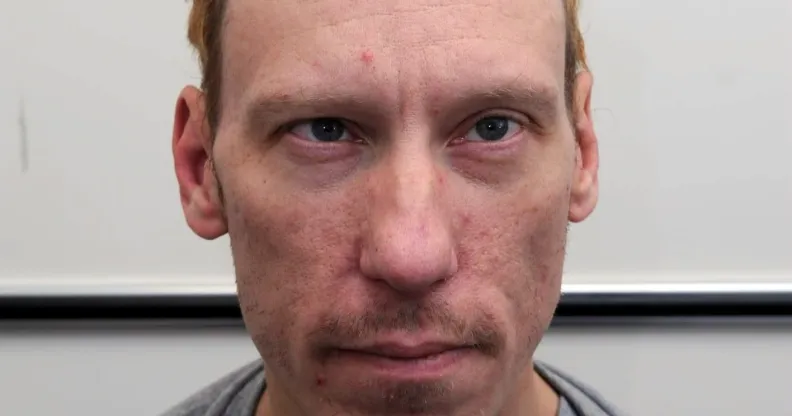Police saw first Stephen Port victim as just ‘a young boy shagging for money’, inquest hears

Stephen Port killed four young gay men between June 2014 and September 2015.(Metropolitan Police)
Friends of “Grindr killer” Stephen Port’s first victim, Anthony Walgate, have told an inquest that they believe police made “assumptions” which affected investigations.
Over the next nine weeks an inquest jury will hear how Port murdered Walgate, 23, Gabriel Kovari, 22, and Daniel Whitworth, 21, and Jack Taylor, 25, with fatal doses of the drug GHB between June 2014 and September 2015, and sexually assaulted many other men.
The inquest aims to look at the competency of the Met Police in investigating the crimes, which were at first ruled to be non-suspicious drug overdoses.
Walgate was found dead on 19 June, 2014, after emergency services received an anonymous call saying that a “young boy” had collapsed on the street in Barking.
While Port initially claimed he had returned home to find the victim outside his house, he eventually said that he had in fact hired Walgate, who was a sex worker.
Port claimed Walgate had brought drugs with him and said he dragged him out onto the street when he overdosed, worried he would be implicated. Tests later found that Walgate had the date-rape drug GHB in his system at the time of his death.
His death was treated as an overdose, not a murder, and Port walked away with a charge of perverting the course of justice.
Port was not charged with his murder until he had killed three more men, under pressure from the victims’ friends and family.
On Wednesday (13 October), Walgate’s friends spoke at the inquest.
According to MyLondon, China Dunning said she was “convinced that Anthony’s death was suspicious”, and added: “[Police] received [my concerns] professionally but I was also aware that maybe they might have come to the assumption that he was young, gay, a sex worker, and I just thought that they would instantly assume ‘yes, he does drugs as well’, or he would be willing to, or he would take the risk.
Kiera Brennan, another of Walgate’s friend’s, said she felt police viewed him simply as “a young boy shagging people for money, and that “when they found out he was an escort they wrote him off”.
She continued: “I don’t think it was actively against gay people.
“But I do think there was an unconscious bias and assumptions made because of Anthony’s sexuality, because of the job that Anthony was doing.
“I definitely think that had an impact on how things were conducted or not conducted.”
A senior officer denied ‘unconscious bias’ in investigation into Anthony Walgate’s death
Earlier in the inquest, a senior officer involved in investigating Anthony Walgate’s death categorically denied “unconscious bias”.
According to PA, detective chief inspector Chris Jones attended the scene when Walgate’s body was found, and categorised the death as “unexplained” rather than “suspicious”.
Jones said he was unaware that Port already had an allegation of rape on his record, and that medics at the scene observed that Walgate had likely already been dead for up to eight hours.
He told the inquest: “I cannot accept for one minute there is any bias in the approach to the investigation into the death of Anthony Walgate.
“You are alluding to unconscious bias. I have reflected on that. I have challenged myself.
“I am absolutely content that that does not exist in the way I approach any investigation.”
Another officer at the scene recorded that there was “nothing to suggest the victim had been assaulted”, despite significant bruising under his arms, which Jones admitted was “wrong”.
Afterwards, when Jones was made aware of the allegation of rape against Port, and was also shown evidence that Port and Walgate had met up two days before his death, he still refused to categorise the incident as “suspicious”.
“The conduct of Stephen Port was concerning but it was still my view that on the information I knew from the scene, from the post-mortem, that the matter did not cross the threshold for transferring to the homicide command,” he said.
Police didn’t notice drug rape content on Stephen Port’s laptop
While investigating Anthony Walgate’s death police seized Stephen Port’s laptop, but the inquest heard that the officer responsible for analysing it took a year to do so and didn’t notice the huge amount of drug rape content.
Detective Constable David Parish said that the laptop spent 10 months with forensic scientists, according to the Evening Standard, and that he finally received a USB stick with all material from the laptop in June 2015, a full year after Walgate died.
However, even when he had access to the USB stick, he somehow skipped over repeated searches for drug rape videos and messages in which Port bragged about having sex with a drugged man who was like “a ragdoll”.
Instead, he reported that the laptop contained sex videos and selfies relating to Port’s “lifestyle”.
Speaking at the inquest, Parish said: “Some of the things I was asked to do [during the investigation] I wasn’t trained in.
“I could have had more training.
“But in terms of the laptop – for the last seven-and-a-half years I wish I could have done that.
“And that is something I have to deal with.”
The inquest continues.

